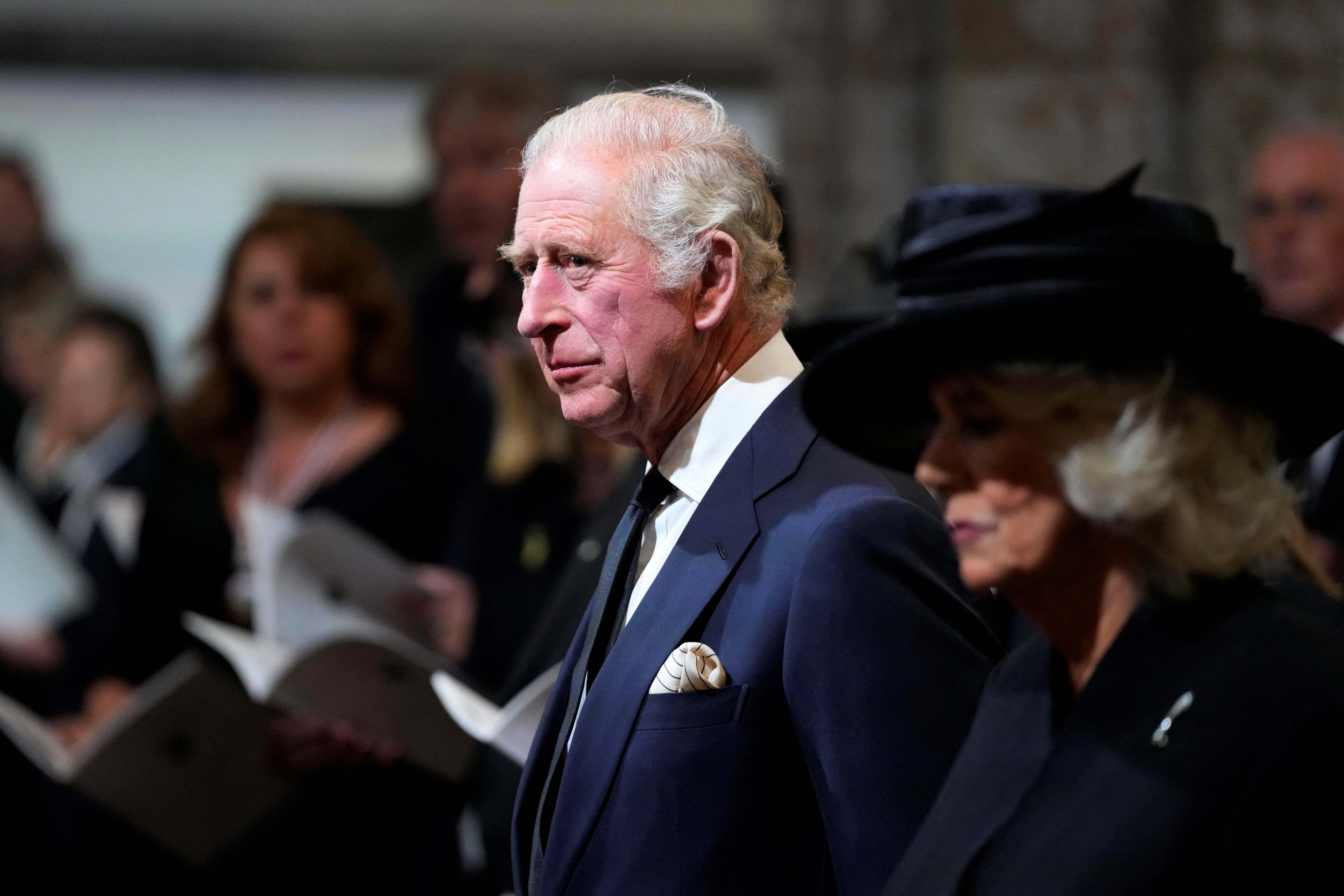Will King Charles intervene in politics the way he did while he was the Prince of Wales?
Some ministers profess confidence the King will resist temptation, writes Andrew Grice


Behind the cross-party unity over the Queen’s death and pledges of loyalty to her successor, senior politicians across the spectrum ask themselves the same explosive question: will King Charles intervene in politics in the way he did as Prince of Wales?
On the face of it, the answer is: no. The King will have to end his public activism. As he admitted in his first address: “It will no longer be possible for me to give so much of my time and energies to the charities and issues for which I care so deeply.”
Previously, he said he would not be so “stupid” as to meddle.
Some ministers profess confidence the King will resist temptation. They note he has made fewer speeches about the political and social causes close to his heart in recent years as he gradually assumed more of the Queen’s duties. Ministers do not expect him to make speeches without first clearing them with the government, so they reflect its policy; they do expect him to get any political opinions off his chest during Liz Truss’s weekly audience with him. That would be a far cry from the “black spider memos” – a reference to his handwriting – he fired off to ministers on a wide range of issues when he was dubbed the “prince of wails.”
Although the Tory right predictably sees him as “woke,” his views do not fit into one box. He made environmentalism more appealing to some wary Conservatives, but also opposed a ban on fox hunting and spoke out against modern architecture. He has several influential friends on the right, some of whom are dubbed “puffed-up, overprivileged, out-of-touch courtiers” by their critics.
Some senior figures at Westminster fear privately the King’s views on his pet subjects might emerge into the public domain via garrulous friends who like to show they are in the know. This might have been how his recent criticism of the government’s “appalling” plan to send asylum seekers to Rwanda surfaced, rather than being a deliberate leak.
In contrast, the Queen and her inner circle were more discreet. Her public interventions were extremely rare, such as her plea for Scots to “think very carefully” before the 2014 referendum on independence.
The Queen did gossip with senior ministers; one recalled a less than flattering quip about a former archbishop of Canterbury. But people rarely betrayed her confidences. It was the politicians who blabbed: David Cameron revealed the Queen “purred down the line” after the Scottish referendum result and Boris Johnson disclosed to his staff the monarch told him on becoming prime minister: “I don’t know why anyone would want the job.”
If it “emerged” that the King was unhappy about Truss’s decision to approve fracking – which would hardly be a surprise, given his track record – it would create tensions between him and Downing Street. It wouldn’t be the first time.
As Prince Charles, he was warned off by the Blair government when he was speaking out against GM crops and backed down. The message was relayed by Peter Mandelson, who became a candid friend of the future King. Very candid, as Mandelson’s memoirs disclosed.
After the death of the Princess of Wales, both Charles and his new partner were unpopular, but Mandelson told him (accurately) that the public would eventually accept Camilla if he did not “force the pace.” He also told him some people had “gained the impression you feel sorry for yourself, that you’re rather glum and dispirited”.
The most likely areas of discord between the King and the Truss government are the climate crisis – a cause he started to champion more than 50 years ago, long before it was fashionable – and trade deals that might undercut UK farmers.
To keep up to speed with all the latest opinions and comment sign up to our free weekly Voices Dispatches newsletter by clicking here
A former cabinet minister told me that climate would now become “a source of personal interest but private anguish for the King. He won’t be able to go public on it.” There is speculation he will “pass the baton” to the new Prince of Wales, who is keen on conservationism.
One Whitehall insider said: “I don’t think William will use the baton as a stick to beat the government with.” Yet the environmental cause could bolster the monarchy’s appeal to younger people, among whom it is at its weakest.
Truss sounded a sceptical note about net zero as she pandered to Tory members during the leadership election. As prime minister, her signals have been mixed. The bad news is that Jacob Rees-Mogg is in charge of energy policy and Zac Goldsmith has been sacked as an environment minister. But Chris Skidmore, a strong supporter of net zero, is reviewing how the UK can hit the target for Truss.
Tory climate sceptics and their newspaper cheerleaders will not make it easy for the King to speak out on climate; if he does, they will doubtless warn him not to put the constitutional monarchy at risk by meddling in politics. However, the very survival of the planet surely justifies a break from tradition. Let’s hope that where there’s a will, there’s a way.






Join our commenting forum
Join thought-provoking conversations, follow other Independent readers and see their replies
Comments